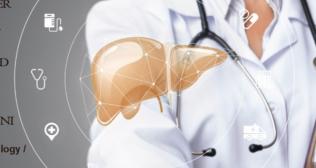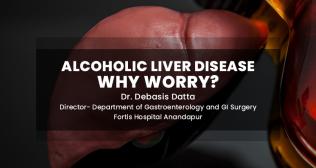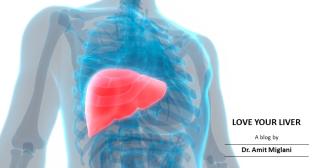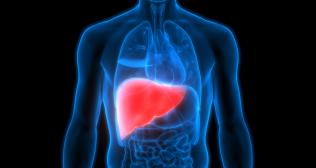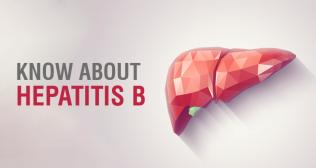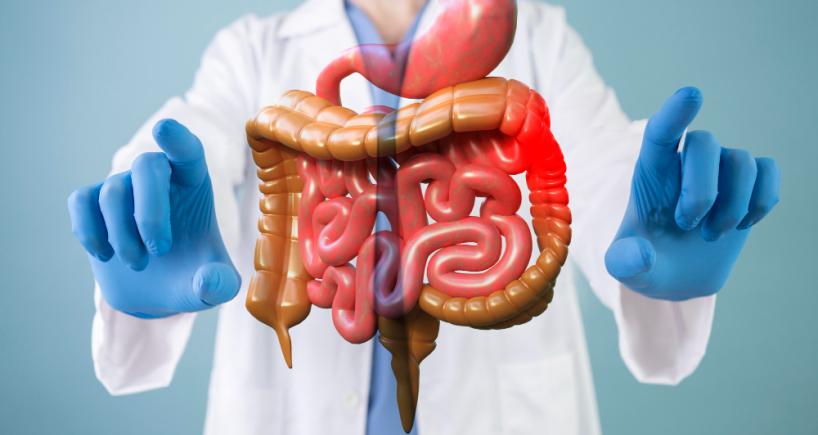
Gastroenterology Essentials: Diagnosing and Treating Digestive Disorders
Consulting a gastroenterologist becomes essential when one gets affected by debilitating conditions known as digestive disorders. Let us understand more on digestive system, its disorders, diagnosis and its treatment.
Importance of digestive health
Digestive health is paramount in ensuring that the body gets adequate supplies of essential nutrients and energy. Good digestive health results from a combination of factors, particularly diet, lifestyle choices, and genetics. If the normal activity within the digestive system is hindered by impairment, infection, or any other cause, different kinds of uncomfortable conditions, which in entirety are called gastrointestinal disorders, can arise. This is where gastroenterology steps in: specialized care and treatment for many digestive problems.
Navigating the world of gastrointestinal issues can be overwhelming, but understanding the basics of conditions, diagnosis and treatment can empower you to take control of your health.
Common Digestive Disorders
Irritable Bowel Syndrome (IBS): A functional GI disorder marked by recurrent abdominal pain and altered bowel habits (diarrhea, constipation, or both) without identifiable organic pathology.
Gastroesophageal Reflux Disease (GERD): This condition causes the retrograde passage of gastric contents into the esophagus by triggering symptoms such as heartburn and regurgitation.
Inflammatory Bowel Disease (IBD): This refers to chronic inflammation of the gastrointestinal tract, mainly triggered by two conditions. This includes Crohn’s disease, which may attack any part of the GI tract, and ulcerative colitis, which mainly attacks the colon and rectum.
Celiac Disease: This chronic autoimmune disorder is caused by the ingestion of a protein known as gluten (mainly found in wheat, barley, etc.).
Peptic Ulcer Disease (PUD): The formation of ulcers in the stomach or duodenum due to the imbalance between mucosal protective factors and aggressive factors like gastric acid and Helicobacter pylori infection.
Understanding these disorders is crucial for developing effective diagnostic and therapeutic strategies to manage and alleviate their impact on patients’ quality of life.
Diagnosis
Gastroenterologists, specialists in digestive health, use a combination of approaches to accurately diagnose digestive disorders. Here's a glimpse into their diagnostic toolbox:
Your doctor will meticulously inquire about your symptoms, medical history, lifestyle habits, and medications. A physical exam will assess your abdomen for tenderness, swelling, or other abnormalities.
Laboratory test: These tests analyze your blood and stool for signs of infection, inflammation, malabsorption, or other abnormalities. Some of the specific tests for gastrointestinal conditions include:
Stool culture: This test examines the bacterial infections in the digestive tract that have triggered conditions such as diarrhea or gastritis.
Blood test: A blood test is advised to check for stomach infections, Helicobacter pylori infection, anemia and other conditions.
The fecal occult blood test: This test detects the presence of blood in the stool.
Imaging studies:
Endoscopy: This is an invasive procedure wherein doctors can see what goes on inside the body without having to go through major surgery. It requires a long, flexible tube with a lens and video camera on the far end, called an endoscope. This allows viewing of the inside by inserting the instrument into a hollow organ or body cavity.
Colonoscopy: A medical test that allows a doctor to view the internal area of a large intestine or colon, with the help of a flexible tube called a colonoscope. The colonoscope has a small camera and light at the end, which irrigates the lining of the colonic wall, removes stool, and inflates the bowel for optimal visualization.
Lower GI (gastrointestinal) series: A lower GI series, or a barium enema, is an imaging examination that moves through the rectum and large intestine and into the lower portion of the small intestine. The test is done by having a liquid called barium inserted into the rectum as an enema. An X-ray of the abdomen is then taken, which outlines narrowed areas of the colon (strictures), blockages (obstructions), and other problems.
Computed tomography: This is a medical imaging test that generates detailed pictures of the body’s internal structures. It provides clear images of bones, muscles, fat, and organs, offering more detail than standard X-rays.
Biopsies: If necessary, small samples of tissue may be taken during endoscopic procedures for further microscopic analysis.
Treating gastroenterological disorders: a Multi-faceted Approach
Treatment for digestive disorders varies widely, depending on the underlying cause and severity. Common approaches include:
- Lifestyle Modifications: For conditions like irritable bowel syndrome (IBS), dietary changes, stress management techniques, and regular exercise can significantly improve symptoms.
- Medications: A range of medications target specific symptoms, such as anti-diarrheal, anti-acids, anti-inflammatory drugs, or antibiotics for infections.
- Endoscopic Procedures: Endoscopy can be used not only for diagnosis but also for treatment, such as removing polyps or widening narrowed passages.
- Surgery: Certain cases necessitate surgical intervention to correct anatomical abnormalities, remove tumors, or manage severe complications. Some of them include appendectomy, hernia repair, colectomy and gastrectomy.
When to Consult a Gastroenterologist?
It's crucial to seek medical attention. If one experiences persistent digestive symptoms like:
- Severe abdominal pain, bloating, or cramping
- Persistent nausea, vomiting, or diarrhea
- Presence of blood in your stool sample, sudden weight loss
- Difficulty swallowing or frequent heartburn
- Yellowing of the skin or eyes (jaundice)
Conclusion
One can sail through the discomforting world of digestive disorders if familiar with the diagnosis and treatment options. The more you know, the better confidence you will be in taking control of your health. It is vital to detect the problem at an early for timely treatment.
Popular Searches :
Hospitals: Cancer Hospital in Delhi | Best Heart Hospital in Delhi | Hospital in Amritsar | Hospital in Ludhiana | Hospitals in Mohali | Hospital in Faridabad | Hospitals in Gurgaon | Best Hospital in Jaipur | Hospitals in Greater Noida | Hospitals in Noida | Best Kidney Hospital in Kolkata | Best Hospital in Kolkata | Hospitals in Rajajinagar Bangalore | Hospitals in Richmond Road Bangalore | Hospitals in Nagarbhavi Bangalore | Hospital in Kalyan West | Hospitals in Mulund | Best Hospital in India | | Cardiology Hospital in India | Best Cancer Hospital in India | Best Cardiology Hospital in India | Best Oncology Hospital In India | Best Cancer Hospital in Delhi | Best Liver Transplant Hospital in India
Doctors: Dr. Rana Patir | Dr. Rajesh Benny | Dr. Rahul Bhargava | Dr. Jayant Arora | Dr. Anoop Misra | Dr. Manu Tiwari | Dr. Praveer Agarwal | Dr. Arup Ratan Dutta | Dr. Meenakshi Ahuja | Dr. Anoop Jhurani | Dr. Shivaji Basu | Dr. Subhash Jangid | Dr. Atul Mathur | Dr. Gurinder Bedi | Dr. Monika Wadhawan | Dr. Debasis Datta | Dr. Shrinivas Narayan | Dr. Praveen Gupta | Dr. Nitin Jha | Dr. Raghu Nagaraj | Dr. Ashok Seth | Dr. Sandeep Vaishya | Dr. Atul Mishra | Dr. Z S Meharwal | Dr. Ajay Bhalla | Dr. Atul Kumar Mittal | Dr. Arvind Kumar Khurana | Dr. Narayan Hulse | Dr. Samir Parikh | Dr. Amit Javed | Dr. Narayan Banerjee | Dr. Bimlesh Dhar Pandey | Dr. Arghya Chattopadhyay | Dr. G.R. Vijay Kumar | Dr Ashok Gupta | Dr. Gourdas Choudhuri | Dr. Sushrut Singh | Dr. N.C. Krishnamani | Dr. Atampreet Singh | Dr. Vivek Jawali | Dr. Sanjeev Gulati | Dr. Amite Pankaj Aggarwal | Dr. Ajay Kaul | Dr. Sunita Varma | Dr. Manoj Kumar Goel | Dr. R Muralidharan | Dr. Sushmita Roychowdhury | Dr. T.S. MAHANT | Dr. UDIPTA RAY | Dr. Aparna Jaswal | Dr. Ravul Jindal | Dr. Savyasachi Saxena | Dr. Ajay Kumar Kriplani | Dr. Nitesh Rohatgi | Dr. Anupam Jindal |
Specialties: Heart Lung Transplant | Orthopedic | Cardiology Interventional | Obstetrics & Gynaecology | Onco Radiation | Neurosurgery | Interventional Cardiology | Gastroenterologist in Jaipur | Neuro Physician | Gynecologist in Kolkata | Best Neurologist in India | Liver Transfer







